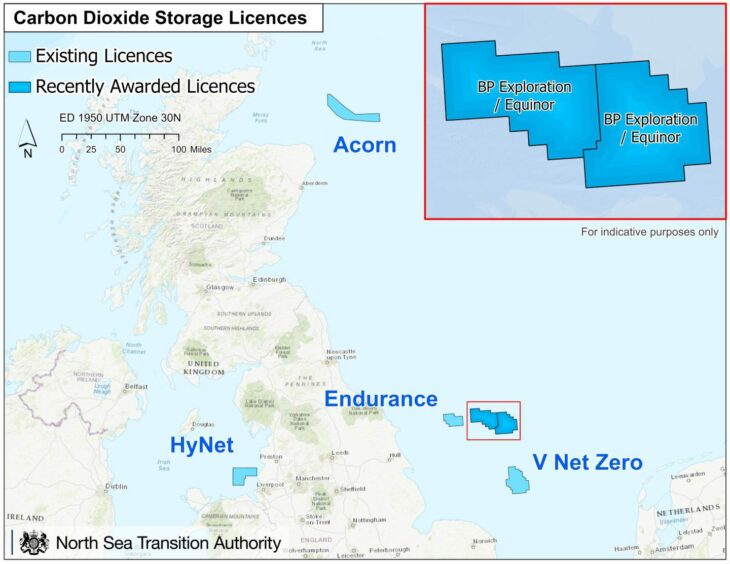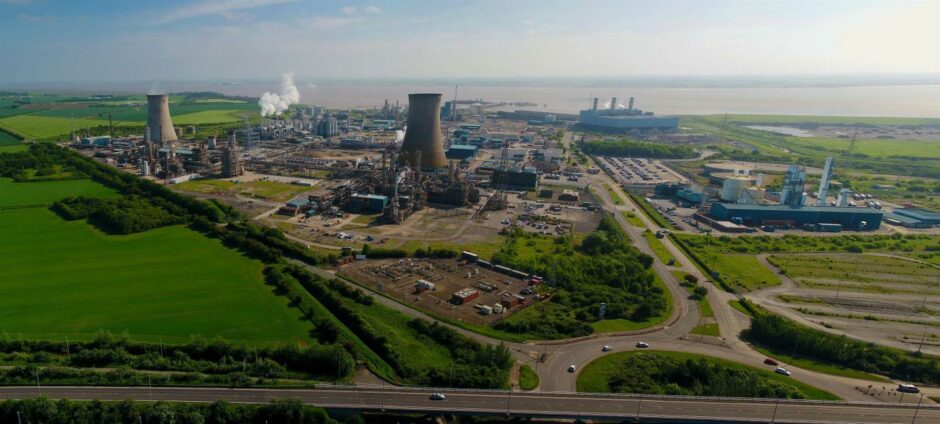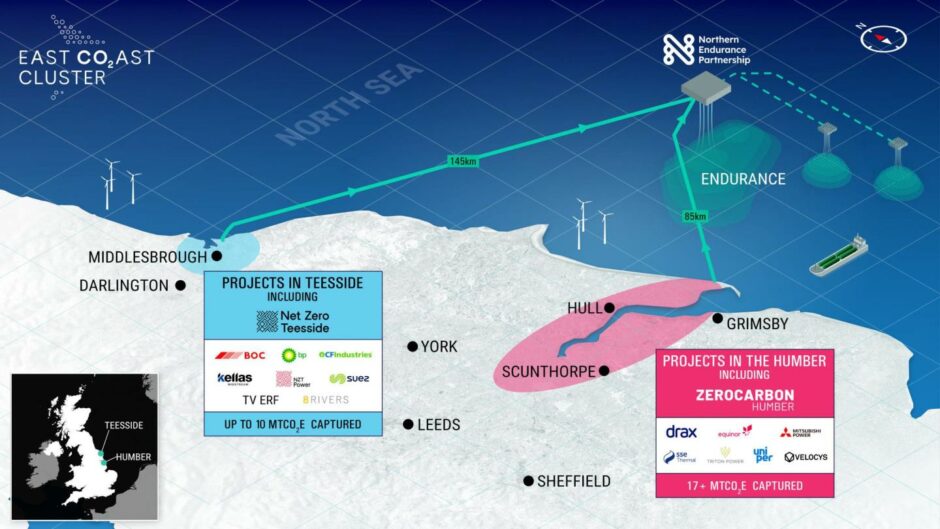
The industry regulator has dished out two carbon storage licenses, taking the total number of permits in place in the UK to six.
Energy giants BP and Equinor have been awarded the southern North Sea warrants, which could store more than 20 million tonnes pa (Mtpa) of carbon by 2038.
The North Sea Transition Authority (NSTA) has hailed the award as a “sizeable step forward” on the path to zeroing out emissions by 2050.
Under the terms of the licenses, BP (LON: BP) and Equinor (OSLO: EQNR) will have to show to the NSTA that they are making progress in hitting certain milestones.
That includes performing seismic surveys of the of the four proposed storage sites, and drilling wells to acquire data before applying for a storage permit.
An appraisal term of eight years has been set.
The four separate storage sites are located around 43 miles off the coast of Humberside, a key area for decarbonisation efforts.
Combined with the existing licence granted for the Endurance carbon store, the backbone of carbon capture and storage (CCS) efforts in the region, they could eventually contribute to the storage of up to 23 Mtpa of CO2 around 1,400 m beneath the seabed.
By the end of the decade the government is aiming for CCS capacity of between 20 and 20 Mtpa, rising to 50 Mtpa by 2035.
Energy and climate change minister Greg Hands said: “Carbon capture provides a key opportunity for the future of the North Sea, as well as UK industries. We are determined to make the UK a world-leader in this developing market and these licences represent an important contribution to making that a reality.”
The NSTA is now stewarding six carbon storage licences on the UK Continental Shelf, having awarded five since 2018 and agreed a transfer of a sixth.
Based on current timelines carbon could be injected into depleted North Sea reservoirs as soon as 2025, with the HyNet, East Coast Cluster and V Net Zero Humber Cluster projects all making steady progress.
HyNet and the East Coast Cluster were picked by Westminster last year to form the vanguard of the UK’s CCS expansion – the Scottish Cluster was chosen as the reserve scheme.
The NSTA recently issued a joint statement alongside the Crown Estate and Crown Estate Scotland, in which the three organisations pledged continued collaboration to unlock the potential of carbon storage.
Scott Robertson, NSTA director of operations, said: “The NSTA is pleased to award these licences which have the potential to make a significant contribution towards the government’s net zero target.
“Carbon storage and low carbon gas production, alongside growth in hydrogen and renewable energy, are all key elements of the energy transition and a crucial part in tackling the climate emergency, but we know that time is short and real action must be taken rapidly, so we will work closely with bp and Equinor to ensure that milestones on this project are met, as we do with other projects across the North Sea.”
The East Coast Cluster aims to decarbonise industrial emissions around the Humber and Teesside.
It has the potential to transport and securely store nearly 50% of all UK industrial emissions – up to 27 million tonnes of CO2 a year – by 2030.
Moreover the scheme aims to support 25,000 jobs per year between 2023 and 2050, rising to 41,000 jobs at the project’s peak in 2026.
The East Coast Cluster’s successful bid was led by the Northern Endurance Partnership, a group comprised of BP, Eni, Equinor, National Grid, Shell and TotalEnergies.
Within the cluster is a host of companies, low carbon projects and initiatives that are looking to store emissions generated from industry, as well as in the creation of blue hydrogen.
Andy Lane, Northern Endurance Partnership managing director, said: “The North Sea Transition Authority’s decision to grant bp and Equinor carbon storage licences is great news for the Humber, Teesside and the East Coast Cluster, which represents almost 50% of the UK’s industrial cluster CO2 emissions.
“This is another important milestone for the East Coast Cluster which will capture and safely store CO2 emissions from a wide range of industrial and power projects, protect and create thousands of jobs and help establish the Teesside and Humber regions as a globally-competitive climate-friendly hub for industry and innovation.”
Grete Tveit, senior vice president for low carbon solutions at Equinor, said: “We’re delighted these licences were awarded to Equinor and bp by the North Sea Transition Authority. This is a major milestone for the East Coast Cluster project which will make a tangible impact in the UK’s climate change ambitions.
“Delivered with our partners in the Humber, Teesside and the Northern Endurance Partnership, the East Coast Cluster will not only establish the UK as a leader in the energy transition, but will also secure and create tens of thousands of jobs and bring investment to local communities.”

 © Supplied by px Group
© Supplied by px Group © PA
© PA © Supplied by East Coast Cluster/
© Supplied by East Coast Cluster/